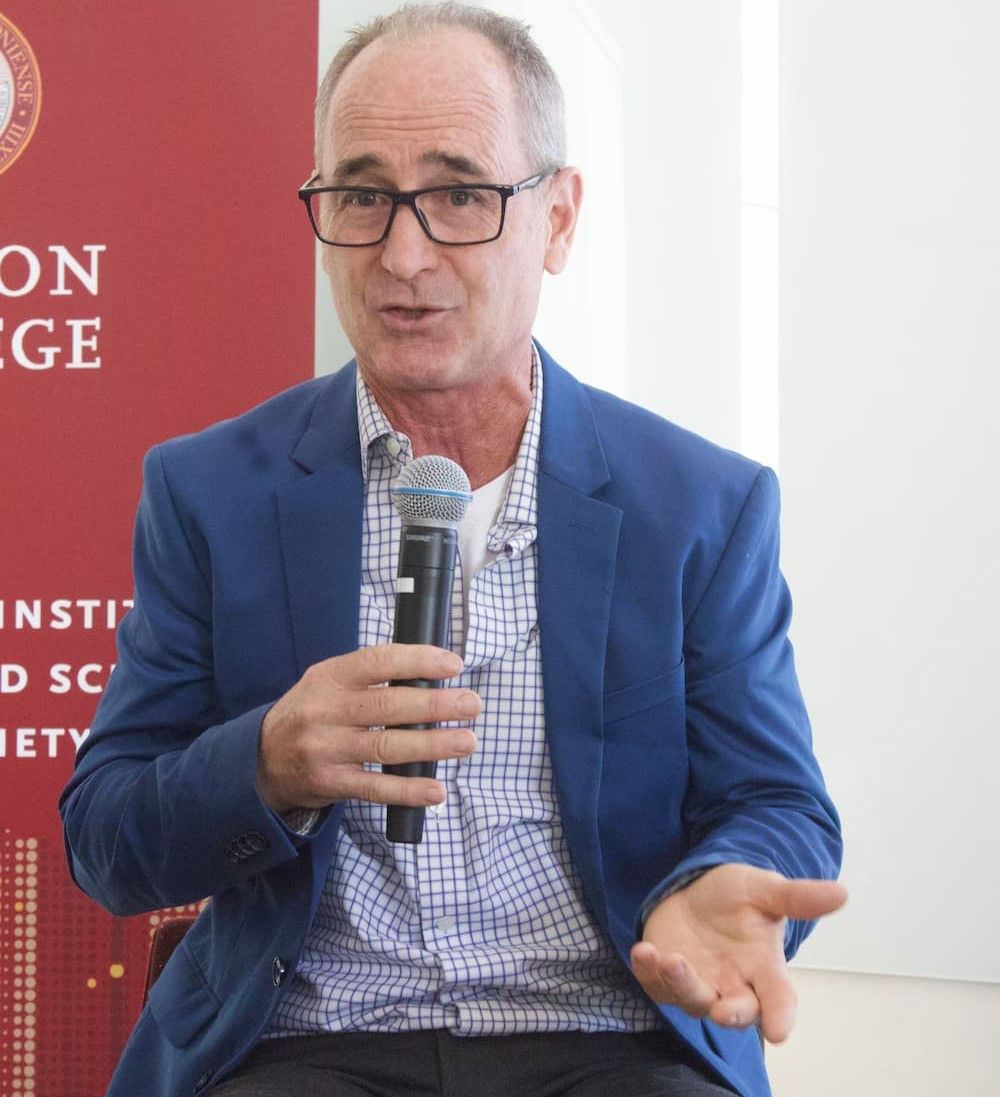Witness to a changing planet
As a foreign correspondent, Jason Beaubien saw the human impacts of climate change.
By Antoni Bańkowski ‘26
Over the course of his career, Jason Beaubien has witnessed the impacts of climate change firsthand. Beaubien, a panelist at the Oct. 1 “Climate Is Every Story” event, started reporting for National Public Radio (NPR) as a foreign correspondent in 2002. Over the next 21 years, he covered stories in more than 60 countries, often focusing on topics related to health, social inequalities, and climate change. In 2012, he became NPR’s global health and development correspondent. He covered the Ebola outbreak in West Africa, and in 2022 investigated the impact of surging temperatures in Baghdad. Later that year, he traveled to Somalia and documented the famine caused by historic droughts. In this interview, he discussed what he learned about this global crisis and how to explain it to audiences.
Over the years of your foreign reporting, did it become more common for you to cover issues related to climate change?
It definitely did. Towards the last part of my time with NPR, I was doing a lot of stories out of places like Somalia, Ethiopia, the Sahel region of Africa, where the climate was really changing. There was a lack of water in Ethiopia, causing communities to get into fights with other communities, because people were moving their cattle. As there are more people on the planet and the climate is changing, those types of conflicts were getting worse as I was reporting on them. It’s tricky to determine: Is this particular conflict driven by climate change? But when you see...that you're getting more and more of these areas where people simply can't graze their animals, they can't grow crops, and so they're moving, it becomes really clear that this is part of this larger shift that's happening on the planet.
When did you first notice that there is a pattern of events tied to global change?
I think with hurricanes it really became clear. Hurricanes were regularly, rapidly intensifying from being a Category 1 to all of a sudden Category 5. That happened when I was based in Mexico around 2010. It became clear to me that this isn't something random, that we're dealing with something different here.
What is the most striking impact of climate change you reported on?
The Baghdad story really affected me. It became clear to me that there are parts of Baghdad that are going to become completely unlivable unless things change. There's no green space at all, it's all dusty. The electricity grid is terrible in Baghdad, so you can't run air conditioning or even fans. And if there is no electricity, you're facing these summers in which the temperature is… it's just unbearable to be there. Working on that story really made me think: Wow, things could get really, really bad.
And the temperatures weren’t always this high, right?
Yes, it’s a really recent change. One of the interesting things about climate change is that places where it has the biggest impact are places where other things aren't functioning well. Somalia, which hasn't had a functioning government for ages. Baghdad, which has been war torn. In places that are already vulnerable because of other problems, you get the added stress of climate shifts, and the impact is amplified.
How do you explain the role of climate change in such stories?
This can be a difficult thing. If you put it right at the top of the story, sometimes it turns off the reader. Starting with a personal story pulls the reader in. In my stories, I always try to start with the personal and then tell that bigger story of what the data is saying. In a story on Somali immigrants showing up at the U.S. border, start by [describing] who these people are and their journey. Then explain that they're coming because their land is now completely dust. Add some information from experts on that region to say: “This is what's happening in Somalia. These rains have not been coming.” You make it about these people's individual story about migrating, and then lower down include that information about how climate change is playing a part.
How can journalists help those who haven’t been directly affected understand the threat of climate change?
People have trouble dealing with...a threat that they don't have control over. They're like: Is it really going to be that bad? Is it really going to raise the temperature by this amount? The potential consequences are so dire that they don't want to engage in that question. It's very hard to get people to completely recognize the level of threat that's out there. If Baghdad loses its water, there's only so much water that they could truck in, so you're going to have an immigration issue. The U.S. and Europe already have huge immigration problems—this is going to make things worse. [A journalist can] point out some of those incremental steps, before pointing out that you in New York City might at some point end up losing your power. New York City's had some terrible floods, floods that they've never seen before. These are changes that are happening; that is climate change coming right to people's doors.



